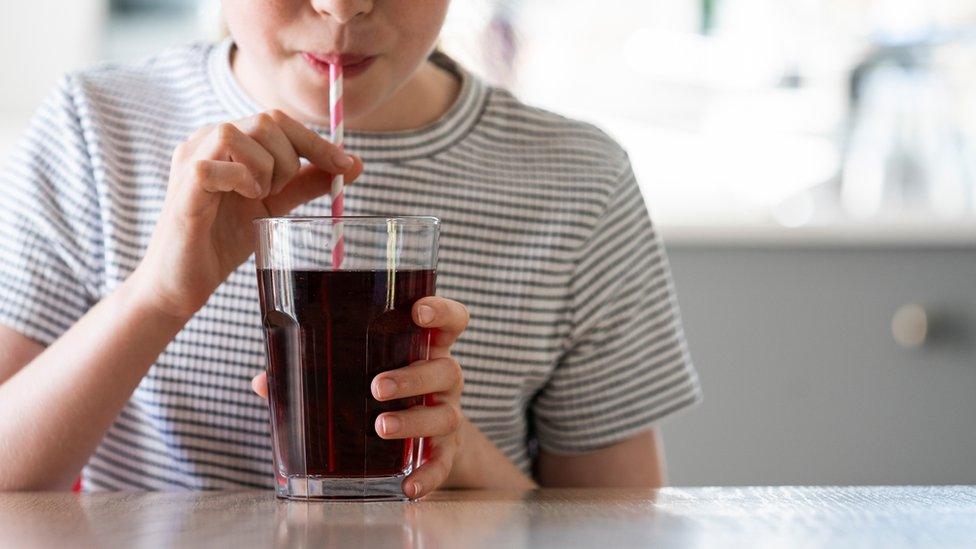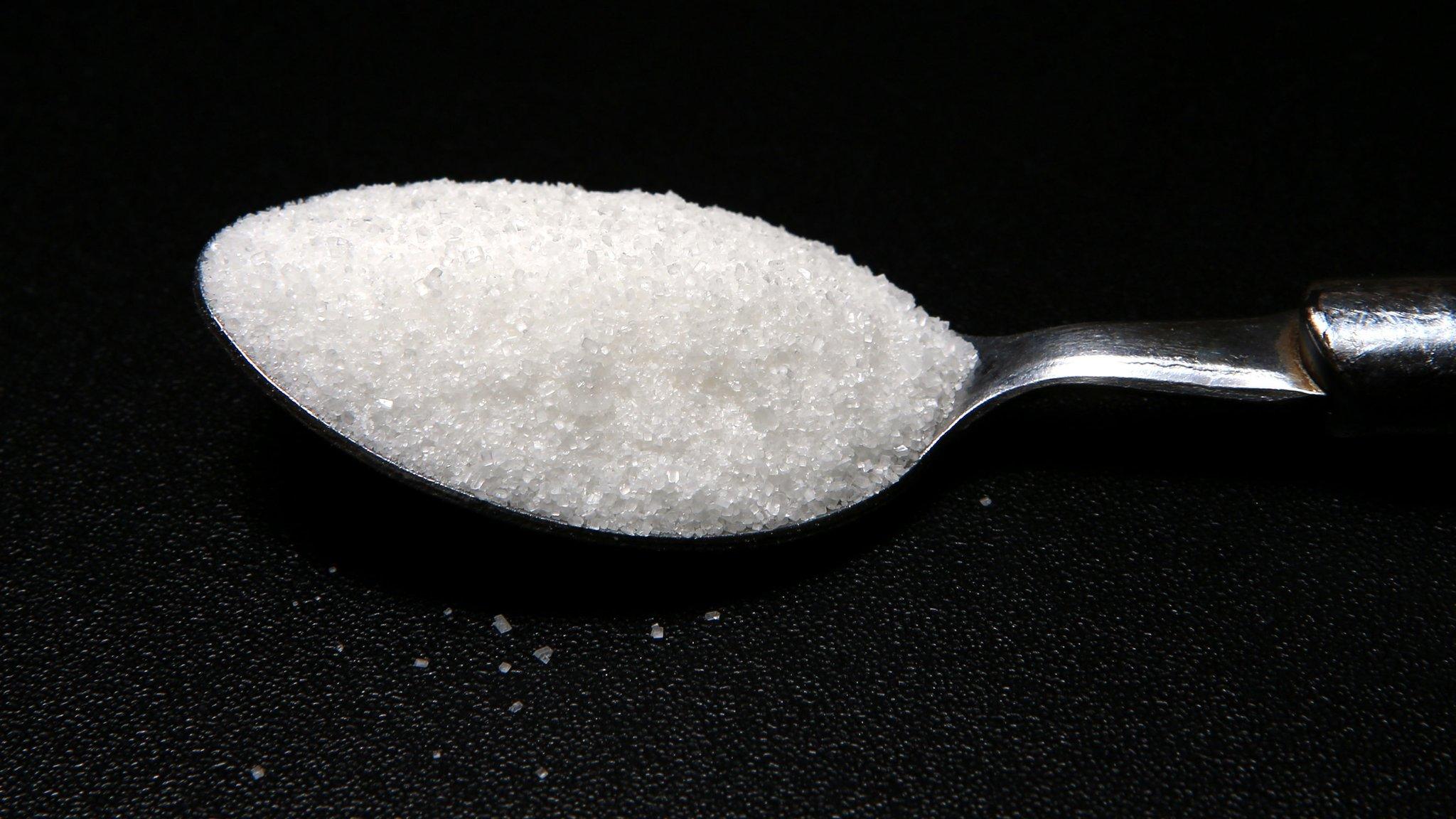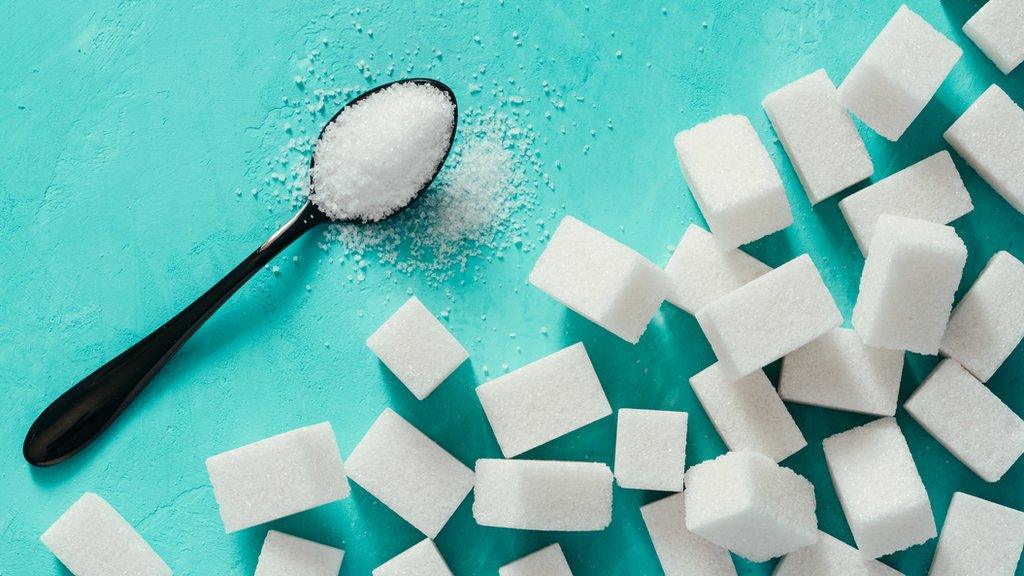Why are people in the UK consuming less sugar?
- Published
- comments
Why are people in the UK consuming sugar?
Less people are consuming sugar in the UK since the introduction of the sugar tax three years ago, according to new findings.
The Soft Drinks Industry Levy, which is also known as the sugar tax, was introduced by the government back in April 2018. The tax requires soft drinks manufacturers to pay a fee to the Treasury, which is the branch of the government that deals with spending and budgeting, for all soft drinks they produce which contain more than five grams of sugar per 100 millilitres.
The tax, which increases the price of sugary drinks, was introduced with the aim of reducing demand for the beverages and tackling obesity.
Researchers from Cambridge University took data from March 2019 which looked at people's purchases in the UK and compared this to research from the year before when the sugar tax wasn't in place. They found that households ended up buying 10% less sugar per week through soft drinks between March 2018 and March 2019.
However, they say the fall in sugar consumption wasn't down to customers buying less soft drinks, but because lots of drinks manufacturers had changed the formulas they'd used for their drinks to include less sugar.
Although, the volume of soft drinks bought remained the same, the amount of sugar consumed through them fell by 29.5g per household per week.

"A 10% drop in the amount of sugar purchased from soft drinks might sound modest, but we know there's an association between the amount of sugar drinks we consume and the risk of developing conditions such as obesity, type 2 diabetes and high blood pressure," said Dr David Pell from Cambridge's Centre for Diet and Activity Research (Cedar).
"Cutting out even a relatively small amount of sugar should have important impacts on the number of people with obesity and diabetes."
The findings are believed to be a positive for people's health due to the reduction in sugar consumption and it's also good news for the food industry as people are still buying the same volume of drinks.
"This represents a valuable win-win for public health and the food industry - potentially improving people's health with no detrimental effect on the volume of soft drinks that companies are selling," said Professor Martin White from Cedar.
- Published26 January 2016

- Published4 December 2019

- Published15 August 2019

